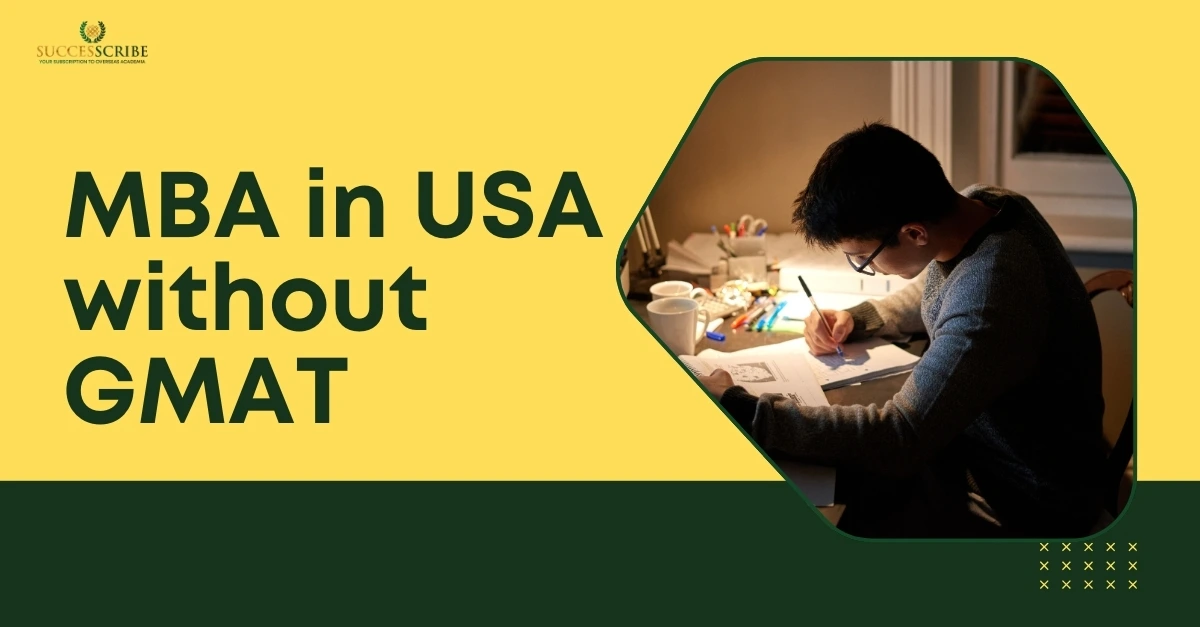Pursuing an MBA (Master of Business Administration) is a significant investment in one’s career and future. For aspiring business leaders, the choice between studying MBA in USA or UK presents two distinct pathways to business education excellence. Both countries host some of the world’s most prestigious business schools, but they differ significantly in program structure, educational approach, cost, and career outcomes. Whether you choose an MBA in USA or UK, both destinations provide transformative experiences that can propel your career forward. This topic examines the key differences between MBA programs in these two countries, helping prospective students make an informed decision based on their career goals, financial considerations, and personal preferences.
MBA in USA or UK: Duration of the Program

The length of MBA programs represents one of the most fundamental differences between the US and UK approaches to business education. When comparing the structure and timeline, the MBA in USA or UK differs significantly in duration, intensity, and focus
| Country | Typical MBA Duration | Accelerated/Part-Time Options |
| USA | 2 years (Full-Time) | 1-year MBA (e.g., Kellogg, Cornell) |
| UK | 1 year (Full-Time) | 2-year Executive MBA (Part-Time) |
MBA USA Duration
In the United States, traditional full-time MBA programs typically last two years (21-24 months). This longer format includes:
- A core curriculum in the first year
- Summer internship between the first and second years
- Elective courses and specializations in the second year
Some US business schools have introduced accelerated one-year programs to compete with international offerings. For example:
- Kellogg School of Management (Northwestern University) offers a 1-year accelerated MBA
- Cornell University’s Johnson Graduate School of Management has a 1-year MBA option
- Emory University’s Goizueta Business School provides a 1-year program
MBA UK Duration
Most UK MBA programs follow a one-year (12-15 months) intensive format. This compressed timeline means:
- More concentrated coursework
- Less time for internships (typically short project-based experiences)
- Faster return to the workforce
Some notable UK program durations include:
- University of Oxford (Saïd): 12 months
- University of Cambridge (Judge): 12 months
- London Business School: 15-21 months (one of the few UK programs offering a longer option)
Which is Better?
- Choose the USA if you want a longer program with internship opportunities.
- Opt for the UK if you want a faster return on investment (ROI).
Also Check: MBA in business analytics in USA
MBA in USA or UK: Curriculum and Specializations
The curriculum structure and specialization options differ significantly between US and UK MBA programs, reflecting different educational philosophies and market demands.
USA MBA Curriculum
US MBA programs typically feature:
- Broader curriculum: More extensive core courses covering all business functions
- Greater flexibility: More electives and customization options
- Specialization tracks: Formal concentrations in areas like finance, marketing, etc.
- Experiential learning: Case studies, projects, and consulting opportunities
Most USA programs allocate the first year to core courses and the second year primarily to electives and specializations. This allows students to explore multiple areas before choosing a specialization.
Popular specializations in US MBA programs include:
- Finance and Investment Banking
- Technology Management
- Entrepreneurship
- Healthcare Management
- Consulting
- Marketing
- Supply Chain Management
- Business Analytics
UK MBA Curriculum
UK MBA programs are characterized by:
- Compact curriculum: Condensed core courses
- Integrated approach: More holistic view of business functions
- Project-based learning: Emphasis on practical application
- International business focus: Greater emphasis on global business perspectives
Given the shorter duration, UK programs often provide fewer electives but emphasize practical applications through projects with real companies.
Popular specializations in UK MBA programs include:
- International Business
- Finance
- Sustainability and Social Innovation
- Entrepreneurship
- Strategic Management
- Luxury Brand Management
- FinTech
Which is Better?
- USA offers a broader curriculum with more flexibility.
- UK is more fast-paced and industry-focused.
Also check: MBA in finance in USA
MBA in USA or UK: University Rankings and Reputation

Rankings play a crucial role in the perception and reputation of business schools globally. US and UK institutions consistently dominate global MBA rankings, though with different patterns of representation. Whether you choose an MBA in USA or UK, you will have access to some of the most prestigious business schools globally.
Top 10 Global MBA Rankings
| Rank | US Business Schools | UK Business Schools |
| 1 | Stanford GSB | London Business School (LBS) |
| 2 | Harvard Business School | Oxford (Said) |
| 3 | Wharton (UPenn) | Cambridge (Judge) |
| 4 | MIT (Sloan) | Imperial College |
| 5 | Chicago (Booth) | Warwick |
US MBA Reputation:
- Known for innovation and entrepreneurship
- Strong connections to venture capital and tech industries
- Extensive corporate partnerships
- Powerful alumni networks in major corporations
UK MBA Reputation:
- Strong focus on international business
- Historical prestige and tradition
- Connections to European and Asian markets
- Strong in finance, particularly investment banking and consulting
Global MBA Rankings Overview
Looking at the Financial Times Global MBA Rankings, we see:
| Rank Range | USA Business School | UK Business Schools | Other Countries |
| Top 10 | 7 | 1 | 2 |
| Top 25 | 15 | 3 | 7 |
| Top 50 | 25 | 6 | 19 |
| Top 100 | 42 | 11 | 47 |
Also Check: MBA colleges in USA
MBA in USA or UK: Cost of Studying

The financial investment required for an MBA varies substantially between the US and UK, influenced by tuition fees, living expenses, and program duration.
| Cost Component | USA (Average) | UK (Average) |
| Tuition Fees | $60,000 – $120,000 | £30,000 – £60,000 |
| Living Expenses | $20,000 – $30,000/year | £12,000 – £18,000/year |
| Duration | 2 years | 1 year |
| Total Estimated Cost | $160,000 – $200,000 | £42,000 – £78,000 |
USA MBA Tuition (Top Programs):
- Harvard Business School: $78,000 per year ( $156,000 total)
- Stanford GSB: $80,000 per year ( $160,000 total)
- Wharton: $84,000 per year ( $168,000 total)
- MIT Sloan: $79,000 per year ( $158,000 total)
- Mid-tier US schools: $50,000-70,000 per year
UK MBA Tuition (Top Programs):
- London Business School: £97,500 ( $125,000) total
- Oxford Saïd: £77,000 ($99,000) total
- Cambridge Judge: £71,000 ($91,000) total
- Other top UK schools: £45,000-65,000 ($58,000-84,000) total
Living Expenses in USA
| Location | Accommodation | Food | Transport | Other Expenses | Total Annual Cost |
| New York/ San Fransico | $24,000 | $7,000 | $2,500 | $6,500 | $40,000 |
| Boston/Chicago | $18,000 | $6,000 | $2,000 | $6,000 | $32,000 |
| Other US Cities | $15,000 | $5,000 | $1,500 | $5,500 | $27,000 |
Living Expense in UK
| Location | Accommodation | Food | Transport | Other Expenses | Total Annual Cost |
| London | $20,000 | $6,000 | $2,000 | $7,000 | $35,000 |
| Oxford/ Cambridge | $16,000 | $5,500 | $1,500 | $5,000 | $28,000 |
| Otrher UK cties | $12,000 | $5,000 | $1,000 | $4,000 | $22,000 |
Requirements for MBA in USA or UK

Admission requirements for MBA programs show some similarities between US and UK institutions, but with notable differences in emphasis and expectations.
| Requirement | USA | UK |
| Bachelor’s Degree | Required (3- or 4-year) | Required |
| GMAT/GRE | Usually requiredGMAT (700+) or GRE (320+) | Sometimes waived depending on experienceGMAT (650+) or GRE (315+) |
| Work Experience | 2–5 years (average) | 2–4 years (average) |
| IELTS/TOEFL | Required for non-native English speakers | Required |
| Letters of Recommendation | 2–3 usually | 1–2 usually |
| Statement of Purpose/Essays | Required | Required |
| Interview | Almost always required | Required for shortlisted candidates |
| Resume/CV | Detailed work history | Focused on achievements |
MBA in USA Application Process:
- Multiple rounds (typically 3-4)
- Round 1: September-October
- Round 2: January
- Round 3: March- April
- Decisions within 2-3 months of the deadline
UK Application Process:
- Rolling admissions at many schools
- Earlier applications recommended (September-January)
- Faster decisions (often 4-8 weeks)
US schools typically have more rigid application rounds, while UK programs frequently use rolling admissions, allowing more flexibility in application timing but often filling spots earlier in the cycle.
MBA in USA vs UK: Career Opportunities and ROI

Return on investment (ROI) is a critical consideration when choosing between US and UK MBA programs, encompassing both financial returns and career advancement opportunities.
| Country | Average Salary After MBA | ROI Timeframe |
| USA | $120,000 – $160,000/year | 3–5 years |
| UK | £70,000 – £100,000/year | 2–4 years |
USA MBA Average Salaries (Top Programs):
- Base salary: $145,000-175,000
- Signing bonus: $30,000-50,000
- Performance bonus: $30,000-80,000
- Total first-year compensation: $200,000-300,000+
UK MBA Average Salaries (Top Programs):
- Base salary: £90,000-120,000 ($115,000-155,000)
- Signing bonus: £15,000-25,000 ($19,000-32,000)
- Performance bonus: £20,000-40,000 ($26,000-52,000)
- Total first-year compensation: £125,000-185,000 ($160,000-240,000)
Employment Sectors
| Industry Sector | USA MBA Graduates (%) | UK MBA Graduates (%) |
| Consulting | 33% | 42% |
| Financial Services | 20% | 26% |
| Technology | 24% | 21% |
| Healthcare/Pharma | 8% | 5% |
| Consumer Products | 6% | 4% |
| Energy/Sustainability | 4% | 3% |
| Manufacturing/Industry | 3% | 1% |
| Nonprofit/Government | 3% | 1% |
Return on Investment Analysis
| Factor | USA MBA | UK MBA |
| Program Cost | $205,000-260,000 | $115,000-170,000 |
| Opportunity Cost (Lost Salary) | $160,000-240,000 | $80,000-120,000 |
| Total Investment | $365,000-500,000 | $195,000-290,000 |
| Average Salary Increase | 90-120% | 70-100% |
| Typical Payback Period | 3-5 years | 2-4 years |
Also read: MBA in USA fees
MBA in USA or UK: Cultural Experience and International Exposure

The cultural environment and international exposure offered by MBA programs in the US and UK present distinctive experiences that can significantly impact one’s professional development and network.
Student Diversity
USA MBA Diversity:
- Typically 30-40% international students
- Strong representation from North and South America
- Major US schools actively seek diverse cohorts
UK MBA Diversity:
- Often 80-90% international students
- Greater European and Asian representation
- Extremely diverse classroom experience
| Country | Average % of International Students |
| USA | 35% |
| UK | 85% |
Top Universities for MBA in the USA
The United States hosts the largest concentration of prestigious business schools globally. Below are some of the top MBA programs in the US, along with their key characteristics:
| Instituitons | Location | Class Size | Notable Strengths |
| Harvard Business School | Boston, MA | 930 | General management, leadership development, largest alumni network, case method pioneer |
| Stanford Graduate School of Business | Stanford, CA | 420 | Entrepreneurship, innovation, Silicon Valley connections, highest selectivity |
| Wharton School (UPenn) | Philadelphia, PA | 870 | Finance (world’s top finance program), analytics, strong Wall Street pipeline |
| MIT Sloan | Cambridge, MA | 410 | Technology management, data analytics, STEM-focused curriculum |
| Chicago Booth | Chicago, IL | 620 | Economics/finance, flexible curriculum, Nobel laureate faculty |
| Columbia Business School | New York, NY | 780 | Value investing, media/entertainment, strong Wall Street connections |
| Kellogg School (Northwestern) | Evanston, IL | 500 | Marketing, leadership, collaborative culture, healthcare and social impact |
| Yale School of Management | New Haven, CT | 350 | Integrated curriculum, nonprofit/social impact, global focus |
| Berkeley Haas | Berkeley, CA | 300 | Entrepreneurship, innovation, sustainability, access to Bay Area tech firms |
Many US programs are situated within larger universities, providing access to interdisciplinary resources across fields like engineering, law, medicine, and public policy.
Top Universities for MBA in the UK
The United Kingdom offers some of the world’s most respected business education programs, with distinctive approaches and strengths:
| Instituitons | Location | Class Size | Notable Strengths |
| London Business School | London | 490 | Global ranking, diverse cohort, finance & consulting, flexible program length |
| University of Oxford (Saïd | Oxford | 320 | Leadership, entrepreneurship, global exposure, strong academic legacy |
| University of Cambridge (Judge) | Cambridge | 200 | Innovation, entrepreneurship, one-year program, close ties with Cambridge ecosystem |
| Imperial College Business School | London | 120 | Tech & innovation, strong STEM-business integration, focus on sustainability |
| Warwick Business School | Coventry | 120 | Strategic leadership, finance, value for money, strong corporate partnerships |
| Manchester Alliance Business School | Manchester | 110 | International business, project-based learning, strong alumni network |
| Cranfield School of Management | Cranfield | 60 | Leadership development, aerospace & manufacturing links, practical learning |
| Edinburgh Business School | Edinburgh | 100 | Flexible online and part-time MBA options, international student base |
| Durham University Business School | Durham | 80 | General management, corporate finance, emphasis on global business ethics |
MBA in US vs UK: Visa and Immigration Policies

Immigration policies significantly impact international students’ experiences and post-graduation opportunities in both countries.
USA Visa Process
Student Visa (F-1):
- Requires proof of financial resources
- Allows part-time on-campus work (20 hours/week)
- Permits curricular practical training (CPT) for internships
Post-Study Work:
- Optional Practical Training (OPT): 12 months
- STEM OPT Extension: Additional 24 months for eligible degrees
- H-1B visa lottery system for long-term employment
- Success rates for MBA graduates securing work visas: 60-80% at top programs
UK Visa Process
Student Visa (Tier 4):
- Requires proof of financial resources
- Allows part-time work (20 hours/week during term)
- Streamlined application process
Post-Study Work:
- Graduate Route visa: 2 years of post-study work authorization
- No minimum salary requirement during this period
- Skilled Worker visa pathway after employment
- Success rates for securing post-study work: 70-85%
| Aspect | USA System | UK System |
| Work During Studies | On-campus only | 20 hours/week anywhere |
| Post-Study Work Period | 12-36 months | 24 months |
| Path to Permanent Residency | Complex, multiple visa stages | Points-based system, clearer pathway |
| Spouse/Partner Rights | Limited work authorization | Full work rights |
| Processing Times | 3-5 months | 3-6 weeks |
MBA in USA vs UK: Scholarships and Financial Aid

One of the most critical factors for MBA aspirants is securing financial support to manage the high tuition fees and living expenses. Both the USA and UK offer a variety of scholarships, grants, and financial aid options for international students. However, the availability, eligibility, and award amounts differ significantly between the two countries.
MBA Scholarships in the USA
The USA offers more scholarship opportunities due to the higher number of business schools and private funding options. Some top scholarships include:
| Scholarship Name | University | Award Amount | Eligibility |
| Harvard Need-Based Scholarship | Harvard Business School | Up to $76,000 per year | Demonstrated financial need |
| Stanford Reliance Dhirubhai Fellowship | Stanford GSB | $150,000+ | Indian students with leadership potential |
| Forté Fellows Program | Multiple US schools (e.g., Wharton, Kellogg) | 10,000−50,000 | Female MBA candidates |
| Fulbright Foreign Student Program | Various US universities | Full tuition + stipend | International students |
| McKinsey Emerging Scholars Program | Top MBA programs | $20,000+ | High-achieving candidates |
MBA Scholarships in the UK
The UK has fewer but still substantial scholarship options, especially for international students. Some notable ones:
| Scholarship Name | University | Award Amount | Eligibility |
| London Business School (LBS) Scholarships | LBS | £5,000 – £50,000 | Merit & leadership |
| Oxford Pershing Square Scholarship | Oxford (Said) | Full tuition + £15,000 stipend | Social Impact Leaders |
| Cambridge Trust Scholarships | Cambridge (Judge) | Partial to full tuition | Outstanding international applicants |
| Chevening Scholarships | UK Government | Full tuition + living costs | Global leaders from eligible countries |
Which is Better for an MBA: USA or UK?

| Choose the USA if | Choose the UK if |
| You want a longer program with internships. | You want a fast ROI (1-year MBA). |
| You aim for top-tier consulting/finance roles. | You target European/UK job markets. |
| You prefer a larger alumni network. | You prefer lower costs. |
| You want diverse electives and specializations | You prefer focused, fast-track learning |
| Top USA B-schools that appeal to you | UK’s elite universities attract you |
Conclusion
Choosing between an MBA in USA or UK is a critical decision that depends on factors like program structure, cost, and career goals. The ideal choice depends on aligning your personal circumstances with the distinctive strengths of each educational system. Both countries offer world-class business education, but with different approaches and outcomes that should match your specific career goals and learning preferences. If you seek global prestige and higher salaries, the USA is better. If you want a fast-track MBA with strong European opportunities, the UK is ideal.
Related Post
Masters in project management in USA
Masters in international business in USA
Masters in interior design in USA
Masters in human resource management in USA















